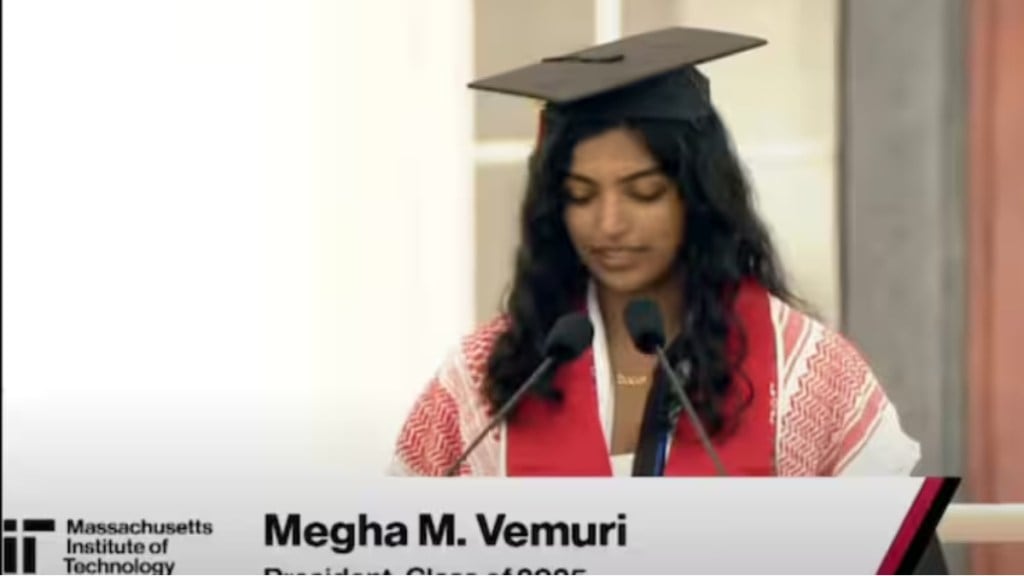At the Massachusetts Institute of Technology’s Class of 2025 graduation ceremony on May 29th, student body president Megha Vemuri delivered a commencement address that quickly made headlines across the U.S. Departing from the usual expressions of gratitude and celebration, Vemuri used her moment in the spotlight to speak out against MIT’s research ties with the Israeli military and to express unwavering support for the people of Palestine.
A Keffiyeh, a microphone and a message
Wearing a red keffiyeh—a symbol of Palestinian solidarity—Vemuri addressed her classmates with an unflinching call for justice. “You showed the world that MIT wants a free Palestine,” she said, referencing student-led efforts urging the university to sever connections with the Israeli military. She didn’t shy away from criticising her own institution, accusing MIT of subjecting student activists to “threats, intimidation and suppression.”
The Gaza contrast
One of the most impactful moments of her speech came when Vemuri drew a stark comparison between the festive atmosphere of graduation and the devastation in Gaza. “Right now, while we prepare to graduate and move forward with our lives, there are no universities left in Gaza,” she stated, highlighting what she described as MIT’s complicity through exclusive research collaborations with Israeli forces.
Divided audience reaction
The audience’s response was mixed. While some graduates chanted “Free, Free Palestine” and waved Palestinian flags in support, others appeared visibly uncomfortable. MIT President Sally Kornbluth, who spoke immediately after Vemuri, avoided direct reference to the speech, instead choosing to defend the principle of free speech.
This was not Vemuri’s first act of advocacy. Throughout her time at MIT, where she pursued a dual degree in Computer Science + Neuroscience and Linguistics, she has been active in social justice circles. She led the “Written Revolution” initiative and worked at the McGovern Institute for Brain Research, consistently championing causes related to justice, identity, and global responsibility.
Part of a broader student movement
Vemuri’s speech reflects a larger trend among students nationwide who are using academic platforms to speak on global issues—from climate justice to armed conflict. Many see this as a new wave of civic engagement emerging from elite campuses.
Criticism and controversy
As expected, the speech did not come without backlash. Critics argue that a commencement ceremony is not the appropriate venue for political discourse and warn against oversimplifying complex geopolitical conflicts. Others, however, view the moment as a powerful example of student courage and moral clarity.
Regardless of where one stands on the content of her message, Megha Vemuri ensured her voice was heard. In a cap, gown, and keffiyeh, she transformed the graduation stage into a platform for protest and principle—challenging even the most prestigious institutions to reckon with their global impact.

